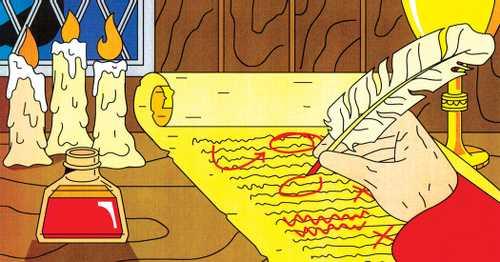Learn more about communication with this collection
How to write clearly and concisely
How to use proper grammar and punctuation
How to structure a business document
The first draft
The first words you write are the first draft. Writing is thinking. You'll rarely know what exactly you want to say when you start writing.
The time you put into editing, reworking and refining turns your first draft into a second draft, and then into a third. If you keep refining it over days or weeks or even years, it eventually becomes something great.
1.3K
5.15K reads
Common errors
Most writing mistakes are widespread, but good writers just get better at spotting them. Some things you'll learn to watch for are:
- Overuse of jargon and business-speak, like "utilize" or "endeavor" instead of "use" or "try."
- Clichés are stale phrases that have lost their impact and novelty through overuse. If you are used to seeing it in print, don't use it.
- The passive voice. The subject of the sentence should be the person or thing taking action, not the thing being acted on. "Harry wrote this article," is better than "This article was written by Harry."
- Rambling. When you are not sure what you want to say, it is easy to phrase it in three or four different ways. A single concise sentence is generally better.
1.31K
3.67K reads
Give it some space
When you write something, you get very close to it. It is nearly impossible to distance yourself from it straight away to edit properly.
The longer you can leave a draft before editing, the better. Half an hour to two days is enough of a break to edit well. When you do edit, read your work out loud. You'll catch more problems and get a better feel for how everything flows.
1.23K
3.09K reads
If in doubt, cut it
It is more likely you've written too much than too little.
The rule for most writers is, "If in doubt, cut it." If a word, sentence, or paragraph isn't necessary, delete it. It will clarify what you're trying to say.
1.23K
3.31K reads
Spend the most time on the beginning
The beginning of anything you write is the most important part. If you don't catch someone's attention at the start, you won't hold it later.
You should spend a disproportionate amount of time working on the first few sentences, paragraphs, or pages.
1.24K
3.15K reads
Keep the structure in mind
The structure is what your writing hangs on.
- A topic sentence that is followed by supporting paragraphs and a conclusion work best.
- Break up a series of paragraphs into concise points and, where necessary, insert subheads.
- For longer pieces, the structure will need a lot of work. Narratives need to flow, and arguments need to build.
1.22K
3.08K reads
Use all the resources you can
A recommended how-to guide on writing good, clear English is “The Elements of Style” by William Strunk Jr. and E.B. White.
- “Politics and the English Language” by George Orwell is also worth studying to avoid “ugly and inaccurate” writing.
- A writing assistant like Grammarly can flag common writing, spelling, and grammatical errors.
- A good thesaurus is also essential for finding just the right word.
- A second pair of eyes. Ask relatives and friends to read over your work.
1.31K
3.47K reads
CURATED BY
More like this
4 ideas
Tear It Up and Start Again
nytimes.com
13 ideas
5 ideas
How to Stop Sabotaging Your Writing Efforts | VelocityWriting.com
velocitywriting.com
Read & Learn
20x Faster
without
deepstash
with
deepstash
with
deepstash
Access to 200,000+ ideas
—
Access to the mobile app
—
Unlimited idea saving & library
—
—
Unlimited history
—
—
Unlimited listening to ideas
—
—
Downloading & offline access
—
—
Personalized recommendations
—
—
Supercharge your mind with one idea per day
Enter your email and spend 1 minute every day to learn something new.
I agree to receive email updates




